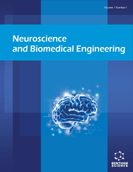Abstract
Background: Language is an advanced cognitive function of the human brain. Chinese word expertise is typically associated with enhanced inferior parietal lobule (IPL) activation in response to written words. Wu et al. (2012) reported that stronger activation of the bilateral IPL was observed in the literate subjects compared with the illiterate subjects. However, whether education level effects the neural activation associated with phonological processing of Chinese is still unknown.
Objective: In order to find the difference of brain activity between illiterate and literate subjects with Chinese character voice processing. Methods: In this study, all subjects were asked to listening the character voice or pure tone pairs and discriminate whether the character voice or pure tone of each stimuli pair was the same or not using response keys. Both literate and illiterate subjects activated a widely distributed cerebral network, including the bilateral inferior, middle and superior frontal gyri, superior temporal gyrus and parietal lobe, in the Chinese character voice judgment task. Finally, we directly compared the activation's of literate subjects with illiterate subjects. Results: The results demonstrate that brain activation in the bilateral parts of the posterior inferior parietal lobule is more active for literate than illiterate subjects in the Chinese character voice judgment task. We found that no significant activation for illiterate and literate subjects in the pure tone judgment task. Conclusion: In conclusion, phonetic pairs of the glyph character voices are proposed, and all of the character voice pairs are ambiguous in the meaning of the CCD task. Therefore, compared with the illiterate subjects, the literate subjects exhibited stronger bilateral IPL activation.Keywords: Illiterate, literate, inferior parietal lobule, chinese character voice, pure tone, fMRI.
Graphical Abstract
 3
3

